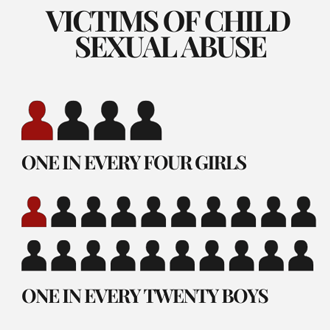Sexual Abuse / Sexual Assault

Many sexual abuse and sexual assault cases are quite horrific — e.g., young children being abused by adults who have some level of authority and control over them. Sexual abuse cases typically involve a pattern of behavior where an individual is subjected to unwanted and inappropriate sexual conduct over a period of time. This can include actions such as grooming, coercion, and manipulation, often by someone in a position of power or trust. Sexual abuse can occur in various settings, including homes, schools, workplaces, and institutions. The ongoing nature of sexual abuse often results in long-term psychological trauma for the survivors, making these cases particularly complex and sensitive.
In contrast, sexual assault cases generally refer to specific incidents of unwanted sexual contact or behavior, such as rape or attempted rape. These cases often involve a single event or a series of discrete events, rather than an ongoing pattern of abuse. Sexual assault cases can occur in various contexts, including public places, private residences, and during social interactions. The immediate and violent nature of sexual assault often results in acute physical and emotional trauma for the survivors.
Both types of cases are serious and have profound impacts on survivors, but they differ in terms of the nature and duration of the conduct involved. Sexual abuse cases often require a detailed examination of the relationship between the perpetrator and the victim, as well as the context in which the abuse occurred. This can involve gathering extensive evidence, including witness testimonies, medical records, and psychological evaluations, to build a strong case.
Sexual assault cases, on the other hand, may focus more on the specific incident or incidents in question. This can involve collecting forensic evidence, such as DNA samples, and obtaining statements from witnesses and the survivor. The legal strategies for sexual assault cases may differ from those used in sexual abuse cases, as they often require a more immediate response to preserve evidence and protect the survivor’s rights. In summary, while both sexual abuse and sexual assault cases involve unwanted and harmful sexual conduct, they differ in terms of the nature, duration, and context of the behavior.
Notable settlements and verdicts include:
- Alkiviades David: A Los Angeles jury awarded $900 million to Jane Doe against Alkiviades David for sexual battery and intentional infliction of emotional distress. The verdict included $100 million in compensatory damages and $800 million in punitive damages.
- Texas Sexual Assault Case: A Bexar County jury awarded $325 million in a sexual assault case, the highest in Texas history. The case involved a successful businessman who repeatedly sexually assaulted his grandchild. The verdict included $125 million in pain and suffering and $200 million in punitive damages.
- Michigan State University agreed to a $500 million settlement with 332 survivors of sexual abuse by former sports doctor Larry Nassar. The settlement included $425 million for the survivors and $75 million for future claimants.
- The Archdiocese of Los Angeles agreed to a $660 million settlement with more than 500 survivors of sexual abuse by clergy members.
- Penn State University agreed to a $109 million settlement with 35 survivors of sexual abuse by former assistant football coach Jerry Sandusky.
- The Boy Scouts of America reached an $850 million settlement with tens of thousands of survivors of sexual abuse.
- USA Gymnastics and the U.S. Olympic and Paralympic Committee agreed to a $380 million settlement with hundreds of survivors of sexual abuse by Larry Nassar.
- The Archdiocese of St. Paul and Minneapolis reached a $210 million settlement with more than 450 survivors of sexual abuse by clergy members.
In some cases, the defendant organization (who is legally responsible for the misconduct of their employees) is highly desirous of avoiding unfavorable publicity, and sometimes a $1,000,000+ settlement can be reached fairly quickly. In such cases, the amount of work to obtain such a settlement is low — investigating the facts and writing a demand letter, with no lawsuit filed. In cases requiring litigation, we would co-counsel with a powerhouse law firm with a track record of litigating these types of cases.
